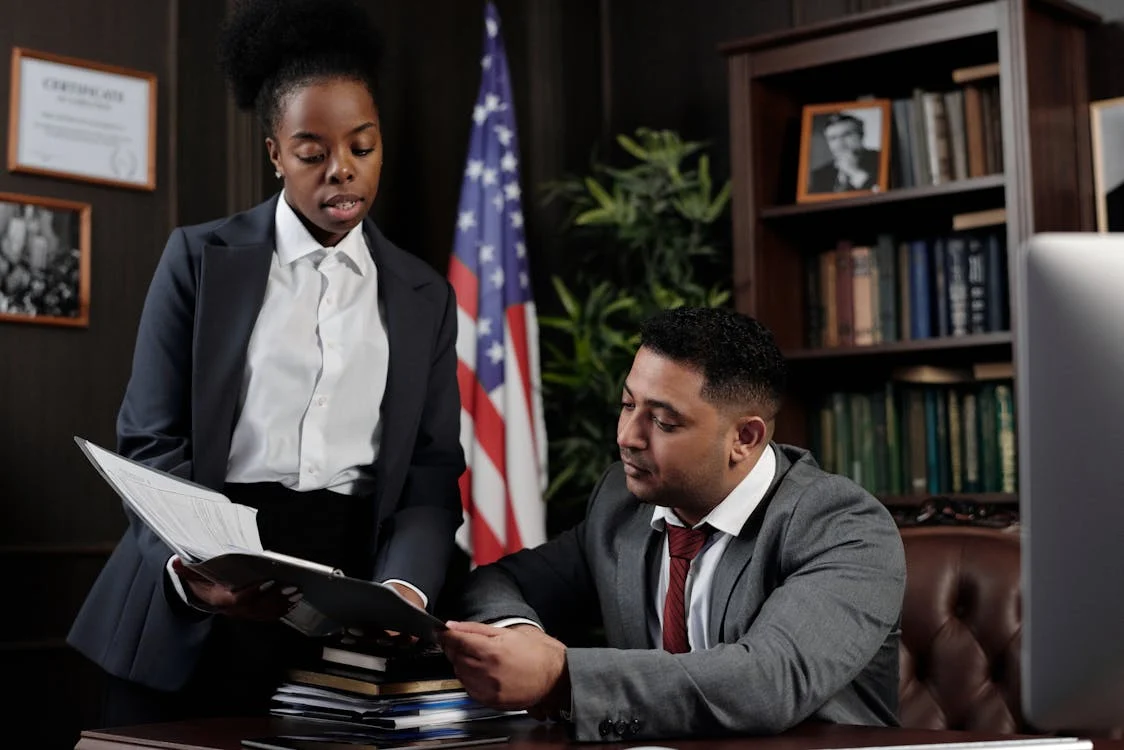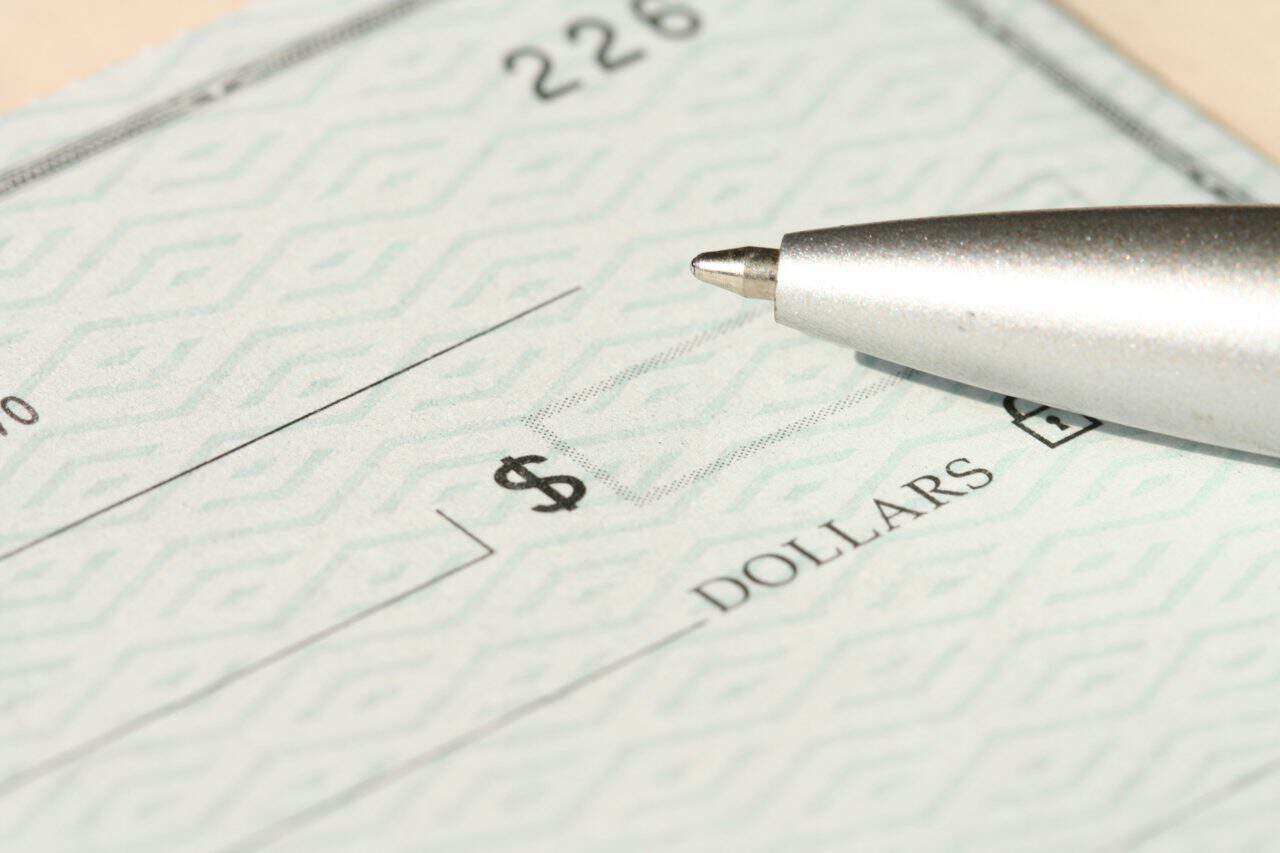Have you ever wondered what information shows up in a background check?
Employers often request background checks on potential employees to get an idea of their criminal history, employment history, and credit score.
If you need to agree to a background check as a job applicant, it’s essential to know what it will show about you and your history.
This article will discuss the types of background checks used and what information they reveal.
We will also provide tips on preparing for an employment background check.
Contents
What Is a Background Check?
A background check is a process that employers use to verify your identity and background information.
They may also use it to confirm your employment history, education, and criminal record.
Background checks are essential for employers because they help them to screen out applicants who might not qualify for the job or who may pose a risk to the company.
For example, suppose you are applying for a job that requires a background check.
In that case, the employer may use the background check to verify your identity and confirm that you never spent time in jail.
What Does a Background Check Consist Of?
A background check generally consists of three parts.
Identification verification: The first part of a background check is to verify your identity.
Items such as a driver’s license, passport, or social security number can help with this part.
Employment history: The second part of a background check is to verify your employment history.
A new employer may ask to look at old pay stubs or W-2 information.
Criminal background check: The third part of a background check is to run a criminal check.
That’s when fingerprints or a national database search come into the picture.
Who Conducts Background Checks?
Employers, landlords, and credit agencies usually conduct background checks.
The government also conducts them when you apply for a job, loan, or benefits.
How Long Does a Background Check Take?
Background checks usually take less than two weeks to complete.
Why You Should Care About a Background Check
A background check can reveal a lot about a person.
It can show if someone has a criminal record, their employment history, and any financial problems they may have.
You need to know if you’re at risk regarding any red flags that may prevent you from getting the job, loan, or benefits you’re applying for.
Types of Background Checks
Here are the most common background checks performed throughout society.
- Criminal background check
- Credit background check
- Employment background check
- Education background check
- Military background check
A criminal background check is a form of background check that looks for a person’s criminal history.
A criminal check will show if you’ve ever committed a crime.
If something turns up inside this background check, the mugshot and details about any criminal record will appear in the results.
An FBI background check might occur here for federal employment.
A credit background check looks at your credit history.
It will show if you have any bankruptcies, foreclosures, or collections on their credit report.
An employment background screening reveals your employment history.
It reveals any gaps in employment history or checks for past job firings.
An education background check looks into your past schooling experience.
An education verification check will show any degrees or diplomas from schools you’ve attended.
A military background check will show if you’ve ever been in the military and your discharge status.
What Can Be Revealed in a Background Check?
Let’s dive a little deeper into what types of information anyone conducting a background check on you might find.
What Shows up on a Criminal History Background Check?
If your history includes crime convictions, the information will show up on your criminal background check, including any felonies, misdemeanors, or infractions.
These types of reviews will also show if you have any outstanding warrants or if you are on the sex offender registry.
What Shows up on a Pre-employment Background Check?
A pre-employment background check will show your employment history, educational background, and any criminal records you may have.
What Information Is Included in an Employee Background Check?
An employee background check includes the same information as a pre-employment background check. However, it may also include drug testing and credit checks.
Some employers may require a background check as part of the promotion process.
Additionally, some employers may continue to run background checks every year.
How To Prepare for an Employment Background Check
If you know an employer will run a background check on you, there are a few things you can do to prepare.
First, order a copy of your own background check results.
Doing so will let you know what information an employer will see.
You can then dispute any inaccuracies that may appear on the report.
Next, gather documentation that may help explain any negative information.
For example, suppose you got fired from a previous job.
In that case, you may want to get a letter from your former employer stating the circumstances.
Finally, prepare to explain any red flags that come up.
Be honest and upfront about what happened and why it won’t happen again in the future.
An employment background check doesn’t have to cause stress.
However, you can ensure that the process goes as smoothly as possible by remaining prepared.
What Do Employers Look For in a Background Check?
When employers conduct background checks, they look for anything that may disqualify a job applicant, including criminal records, employment history, and educational background.
Some employers also run credit checks and drug tests as part of the background check process.
However, these are not as common.
What Are Background Check Red Flags?
There are a few red flags that may appear on a background check.
These include the following types of information.
- A criminal record
- Gaps in employment history
- Poor credit history
- A bad reference from a previous employer
That’s why it’s vital to prepare ahead of time if you know these items will show up to anyone looking into your background.
First, face any red flags head-on and help your employer understand that you’ve learned your lesson.
Then, give them a reason to provide you with a second chance so that you can obtain the job for which you’re applying.
What Can Disqualify a Job Candidate on a Background Check?
In most cases, having a criminal record will not automatically disqualify you from a job.
However, there are some exceptions.
If you’re applying for a job that requires a security clearance, any felony convictions will likely disqualify you from the position.
Additionally, some employers may not hire candidates with poor credit histories, which is more common in positions that involve handling money.
Lying on your application or background check can disqualify you from a job.
Instead, remain honest about your employment history, educational background, and criminal record.
Sex offender convictions will also disqualify people from certain positions.
These positions typically include jobs that work with children or the elderly.
How To Run a Background Check on Yourself
You can run one yourself if you want to see what information will show up on a background check.
There are a few different ways to do this.
Order a copy of your credit file from one of the major credit reporting agencies.
A credit check will give you an idea of what an employer would see if they ran a financial background check on you.
You can also search for criminal records using online databases.
However, keep in mind that these databases may not be 100% accurate.
Consider requesting background information from the court system.
Additionally, you can search online databases and public records.
If you want to run a complete background check on yourself, hire a background check company.
These companies will typically search public records, employment history, and educational background.
Other Methods of Pre-Employment Screening
In addition to background checks, employers may also use other pre-employment screening methods.
- Social media
- References
- Drug testing
Social Media
Many employers will search for job candidates on social media.
Therefore, keep your profile private and clean up any posts that employers may view as unprofessional.
For example, refrain from posts that contain profanity, illegal activity, or discriminatory language.
References
Your references can say a lot about you as a job candidate.
When an employer contacts your reference, they will typically ask about your work ethic, job performance, and attendance.
So make sure to choose references who will speak highly of you.

Drug Testing
Some employers require drug tests as part of the hiring process.
Be prepared for this by refraining from using drugs before your job interview.
Better yet, don’t use drugs before or after getting hired.
You might discover that an employer changes its policies to conduct drug testing at your following review or when you’re attempting to land a promotion.
Wrapping Up
By understanding what background checks entail, you can more effectively prepare for the hiring process.
Keep your background clean and stay honest about any red flags that may appear.
Doing this will give you the best chance of getting the job you want.








Generally speaking all of this is correct. However convicted felons should look at the fine print, and look for exceptions to every rule and use them to your benefit. A felony will not go away the same way a bad report simply drops off your credit file.
With a felony conviction at age 22 I thought life would be impossible. But as time went on (time is your friend here) I managed an incomparable life. Turns out your own worst enemy is yourself.
I’m 59 now. After my felonious ways I may have had it tougher, which makes my goals all the more desirable. Yes you can get a clearance. I did. Yes you likely can have a gun again. I became a licensed dealer. Yes you can travel. I worked in a US Embassy.
Don’t ever give up.